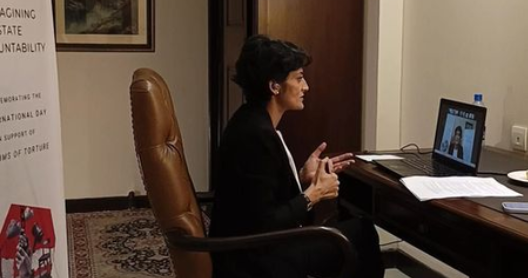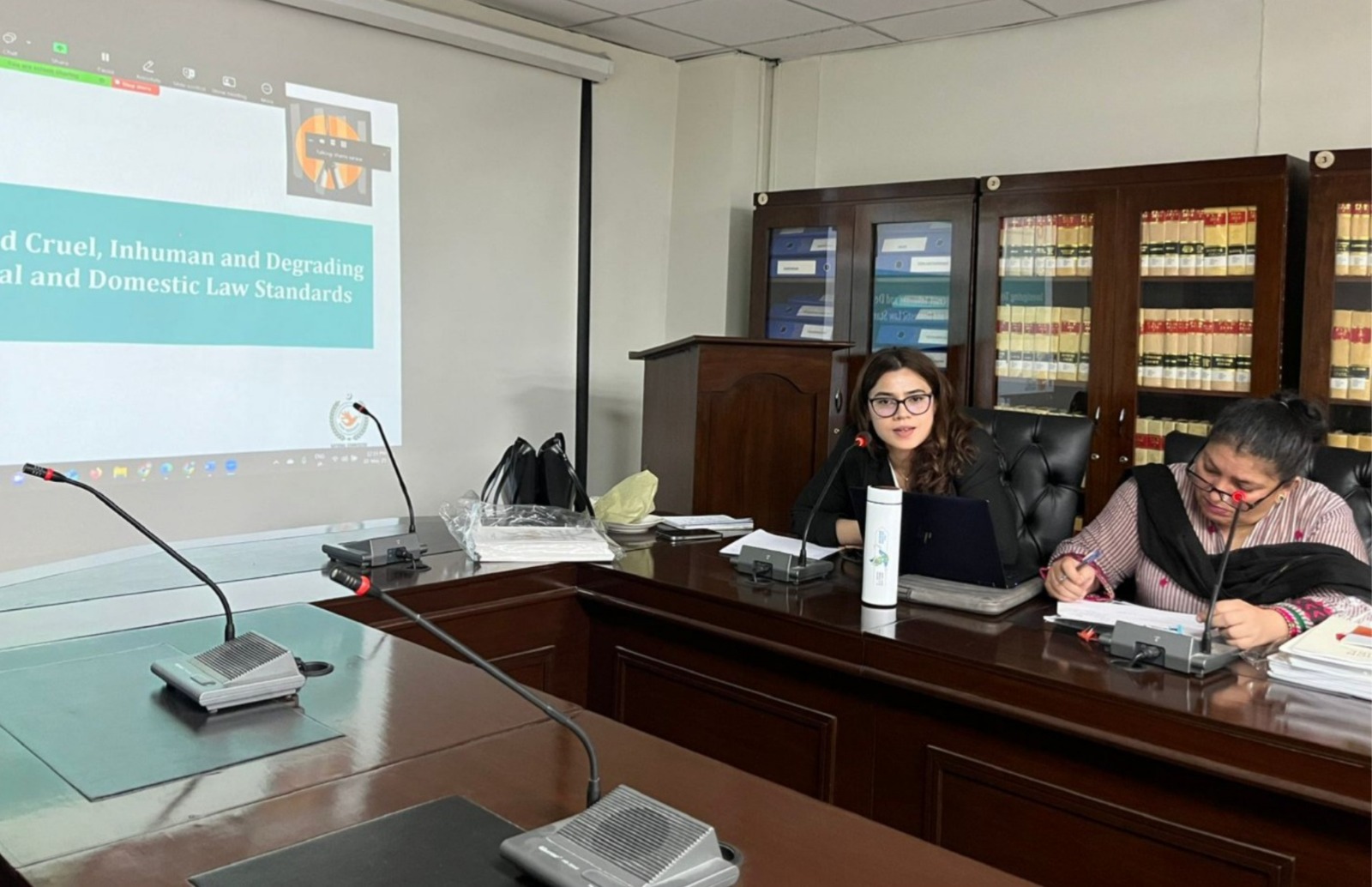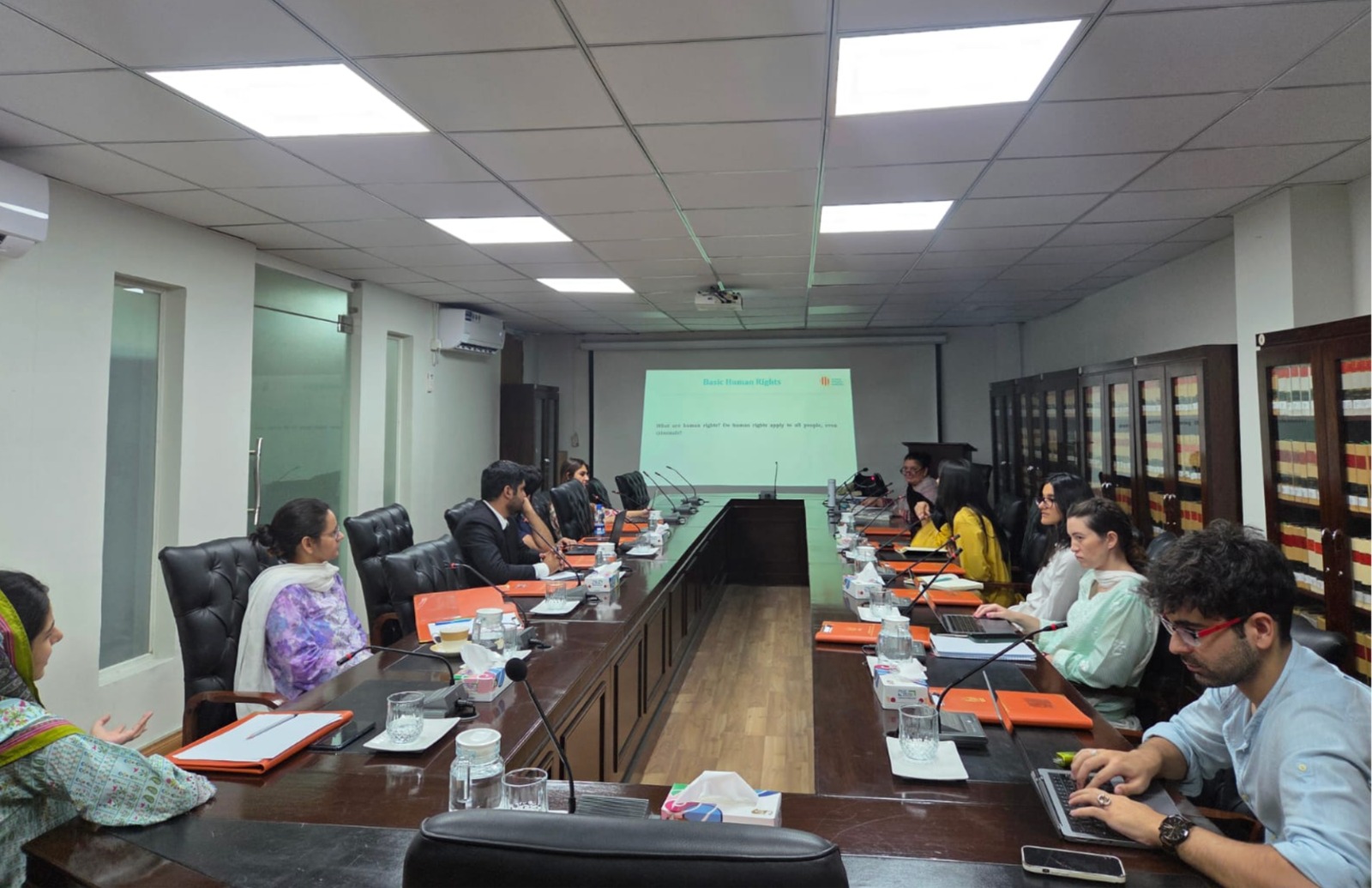On 25 June 2025, JPP joined the National Commission for Human Rights (NCHR) and the Punjab Criminal Prosecution Service to mark the International Day in Support of Victims ofTorture with the launch of Preventing Torture: Training Manual for Public Officials and its accompanying e-course; the first practical guide of its kind in Pakistan to supportimplementation of the domestic and international legal obligations on torture prevention and criminalisation.
The launch event and high-level panel discussions brought together senior justice system actors from across Punjab, including Honourable Mr. Justice Farooq Haider (Lahore High Court),who called for the establishment of provincial inquiry commissions under judicial oversight; Mr. Syed Farhad Ali Shah (Prosecutor General Punjab), who announced he had issuedguidelines for prosecutors across Punjab for the handling of cases involving police torture; and Mr. Nadeem Ashraf (NCHR Punjab Member), who urged notification of official rules tooperationalise the Act. JPP Executive Director Sarah Belal emphasised the manual's role in bridging Pakistan's domestic and international legal commitments with institutional practice,while medico-legal experts Dr. Farhat Sultana (Surgeon Medico-Legal Punjab) and Dr. Khurram Sohail Raja (Head of Forensic Medicine and Toxicology, Aziz Fatima Medical and DentalCollege) stressed the need for capacity building in medico-legal documentation. Law enforcement representatives, including Deputy Inspector General Kamran Adil (Punjab Police),Additional Inspector General Chaudhry Asghar Ali (Punjab Prisons), and Sarfaraz Virk (Director Lahore, Federal Investigation Agency) pledged their commitment to better implementationof their obligations under the Act and training within their respective agencies.
The event also introduced the Global Torture Index by OMCT, a first-of-its-kind tool establishing a data-driven framework for monitoring state progress on the elimination and prevention oftorture. With the UNCAT review and GSP+ monitoring on the horizon, the launch signaled a pivotal move toward cross-sector coordination and tangible safeguards against torture.

On 25 June 2025, Justice Project Pakistan joined the launch of the Global Torture Index, a landmark data-driven tool developed by the World Organisation Against Torture (OMCT)—the world’s largest anti-torture coalition.
The Index is the first of its kind to measure the risk of torture and ill-treatment across 26 countries, including Pakistan. It assesses how effectively states prevent torture, support survivors, and uphold accountability, combining legal analysis with data gathered from civil society. The result is a dynamic global map that offers governments, UN bodies, and advocates a clear picture of where reform is most urgent—and where the greatest gaps lie between law and practice.
JPP’s Executive Director Sarah Belal spoke on the expert launch panel, which featured global leaders in torture prevention, including representatives from the UN Voluntary Fund for Victims of Torture, the Association for the Prevention of Torture, and regional partners from Africa, Latin America, and Europe.
JPP’s Sarah Belal spoke on the Launch and emphasised that the Index is critical for Pakistan as it provides objective evidence to guide reforms and help operationalise laws like Pakistan’s 2022 Act criminalizing torture. JPP highlighted how this data will support efforts to build institutional capacity, strengthen oversight mechanisms, and ensure that protections on paper lead to meaningful safeguards for those at risk of torture.
JPP’s inclusion in this high-level event reflected not only the Index’s recognition of Pakistan’s challenges, but also JPP’s growing visibility and expertise within the global anti-torture movement.
In June 2025, Justice Project Pakistan participated in a high-level roundtable convened by the Parliamentary Committee on Human Rights (PCHR) on the sidelines of Pakistan’s Federal Budget sessions—a critical moment when national fiscal priorities are debated and finalized by both houses of Parliament.
This roundtable provided a strategic platform to remind parliamentarians of Pakistan’s international human rights obligations, particularly under the EU GSP+ framework, and the economic and diplomatic incentives tied to reform. The discussion emphasized that investing in torture prevention, effective oversight, and rights-based governance is not just a legal obligation but an economic imperative.
JPP’s Advocacy Lead, Michelle Shahid, delivered a powerful presentation urging lawmakers to:
The event was attended by over 20 parliamentarians from across party lines, alongside journalists, police officials, and civil society actors—underscoring rare political consensus on the need to integrate human rights into fiscal decision-making.
By placing torture prevention squarely in the context of economic growth, international credibility, and legal compliance, the session laid the groundwork for parliamentary support to fund and sustain critical anti-torture reforms in the coming fiscal year.

In May 2025, Justice Project Pakistan conducted a specialised training for the National Commission for Human Rights (NCHR) titled:“Investigating Torture and Cruel, Inhuman and Degrading Treatment: International and Domestic Law Standards.”
This session marked the first pilot of the Training Manual for Torture Prevention—Pakistan’s first practical guide to operationalise the Torture and Custodial Death (Prevention and Punishment) Act, 2022.
Led by JPP’s Policy and Advocacy Team, the training brought together senior NCHR Members, legal officers, and provincial coordinators from across the country. Twenty officers from NCHR’s federal and provincial offices were trained in:
The training reflects JPP and NCHR’s shared and ongoing commitment to building institutional capacity, using the manual and its methodology to strengthen how torture cases are identified, investigated, and prevented. Building on this successful pilot, JPP will continue to roll out the training across Pakistan—empowering more public officials and national institutions with the tools to turn legal protections into meaningful safeguards.


